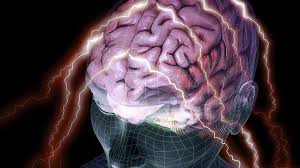
Scientists Discover Possible Link Between Brain Structure and Eating Behavior
A team of scientists at Northwestern Medicine in Illinois has identified a potential reason why some people find it easier to stop eating when they’re full, while others struggle. Their research suggests that variations in our sense of smell and neural reward systems, as well as the brain's connections managing these senses and feelings, might play a crucial role.
The study, recently published in the Journal of Neuroscience, highlights a newly discovered structural connection between two brain regions that seem to regulate feeding behavior. Using neurological imaging from the Human Connectome Project, a large multi-center National Institutes of Health (NIH) initiative, researchers examined brain regions associated with the sense of smell and behavioral motivation.
Their findings reveal that the strength of the connection between the olfactory tubercle—a part of the brain’s reward system linked to smell—and the periaqueductal gray (PAG), which is involved in responses to negative feelings like pain, can influence a person's body mass index (BMI). Essentially, the weaker this connection, the higher the BMI.
The study explains that our sense of smell significantly impacts our desire to eat. Food odors are more appealing when we're hungry and less so once we're full. However, if the brain circuits that regulate this process are disrupted, these signals might become confused, causing food to remain appealing even when we're no longer hungry. This could lead to overeating and an increase in BMI.
Guangyu Zhou, a corresponding study author and research assistant professor of neurology at Northwestern University Feinberg School of Medicine, stated, “The desire to eat is related to how appealing the smell of food is—food smells better when you are hungry than when you are full. But if the brain circuits that help guide this behavior are disrupted, these signals may get confused, leading to food being rewarding even when you are full.”
The study proposes that strong brain connections between the reward and behavior areas typically regulate eating by sending signals that eating no longer feels good once a person is full. When these connections are weak, these stop signals might not be effectively received, leading to continued eating.
Christina Zelano, a senior study author and associate professor of neurology at Feinberg, emphasized the importance of understanding these basic brain processes. “Understanding how these basic processes work in the brain is an important prerequisite to future work that can lead to treatments for overeating,” she said.
The researchers found correlations between BMI and the circuit strength connecting the olfactory tubercle and the periaqueductal gray. Zhou mapped the strength of this circuit across the olfactory tubercle and confirmed the findings with a smaller MRI brain dataset collected in their Northwestern lab.
Emily Spurlock, a registered dietitian specializing in gut health and weight management at the Institute for Digestive Wellbeing in New York, who also works with people suffering from binge eating disorder, noted the potential implications of this research. “Future studies will be needed to uncover the exact mechanisms in the brain that regulate eating behavior,” added Zelano, underscoring the necessity for further research to develop effective treatments for overeating.
This discovery opens new avenues for understanding the neural underpinnings of eating behavior and may pave the way for innovative approaches to managing conditions related to overeating and obesity.